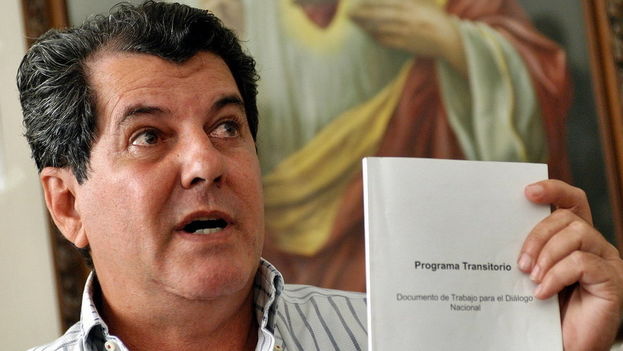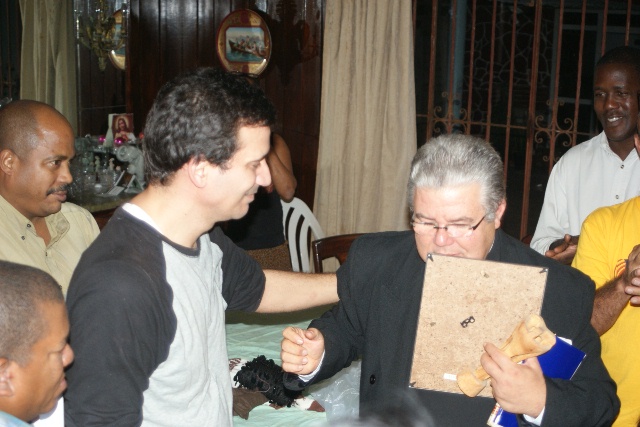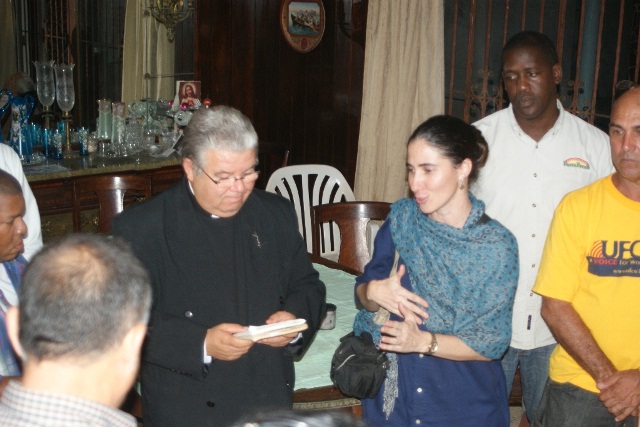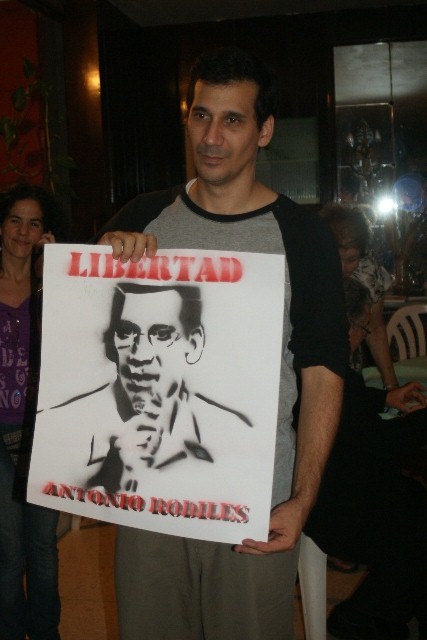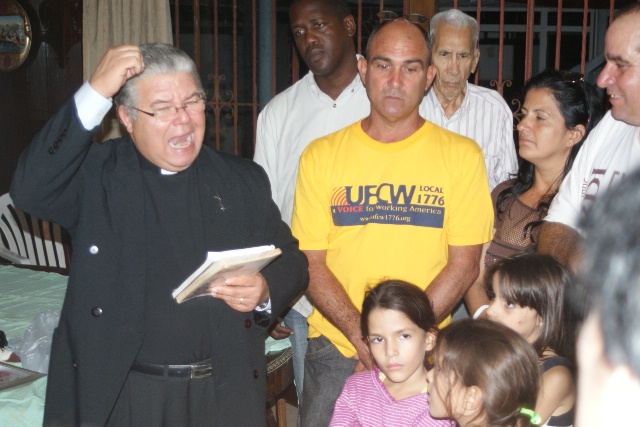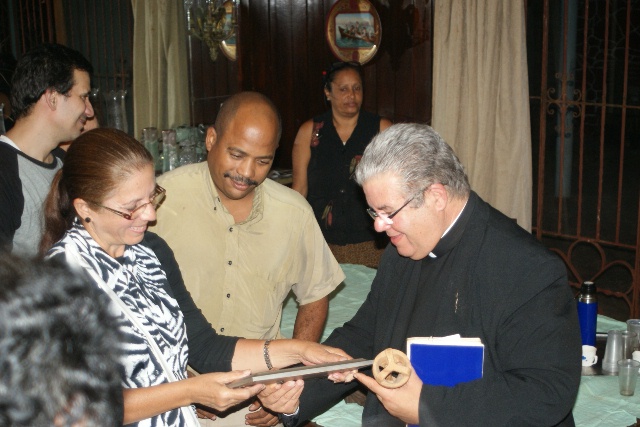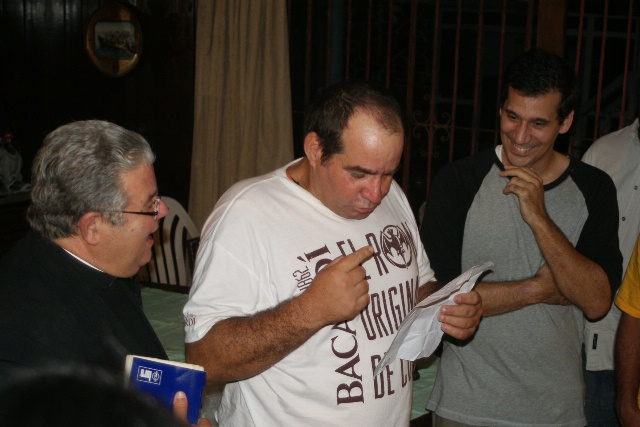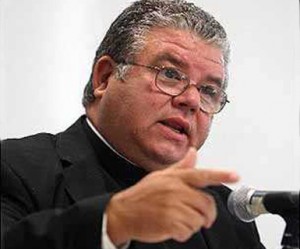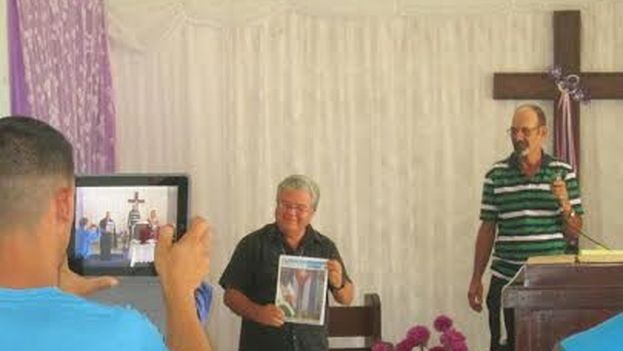
![]() 14ymedio, Luz Escobar, Havana, 8 November 2015 –To a long list of awards and accolades received by the priest José Conrado Rodríguez Alegre, the Patmos Institute Prize has been added, awarded last week by the Baptist church. The pastor said that in his life he has made “a personal journey of great friendship with my Protestant brothers.” About this ecumenical attitude and the current situation of the Catholic Church in Cuba he offered this interview by telephone from the city of Trinidad.
14ymedio, Luz Escobar, Havana, 8 November 2015 –To a long list of awards and accolades received by the priest José Conrado Rodríguez Alegre, the Patmos Institute Prize has been added, awarded last week by the Baptist church. The pastor said that in his life he has made “a personal journey of great friendship with my Protestant brothers.” About this ecumenical attitude and the current situation of the Catholic Church in Cuba he offered this interview by telephone from the city of Trinidad.
Escobar. Some weeks after the visit of Pope Francis to Cuba, what do you think has been the most important legacy of his visit to the island?
Conrado. It was an extraordinary experience for all of us, Catholics and Cubans in general. Francis made a call for a more committed life, more faithful to justice and truth, but also invited us to live more committed to mercy. He has called us to see the faces of those who are suffering, who are waiting for a helping hand, one breath. He has demonstrated that attitude of closeness to the most needy, the poorest, the elderly, children. continue reading
Escobar. The Cuban church is bound to face some changes with the end of Jaime Ortega y Alamino’s tenure as Archbishop of Havana. How do you envision this new stage to come?
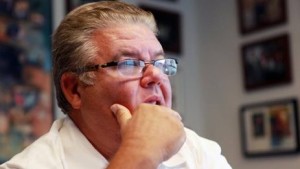 Conrado. The current times demand from us a more intense presence at the side of the people, a greater commitment with the people and at the side of the people. I would say these are moments of a new sensitivity to respond to the call of our people, who have lived through very difficult times. Our people have had to face great difficulties over the years and the Church has the responsibility of accompanying the people along these new pathways. This requires a new inspiration, a renewed ability to seek paths of hope that will lead us to the responsibility of each person to achieve a better Cuba.
Conrado. The current times demand from us a more intense presence at the side of the people, a greater commitment with the people and at the side of the people. I would say these are moments of a new sensitivity to respond to the call of our people, who have lived through very difficult times. Our people have had to face great difficulties over the years and the Church has the responsibility of accompanying the people along these new pathways. This requires a new inspiration, a renewed ability to seek paths of hope that will lead us to the responsibility of each person to achieve a better Cuba.
Escobar. You worked for a long time in the poor neighborhoods and towns of Santiago de Cuba, but now you are located in Trinidad, a more prosperous city thanks to tourism. What differences do you see between one community and the other?
Conrado. In Trinidad there is also great poverty, especially in the countryside. It is a region of contrasts. Some people are surviving with a little more resources, but there is also great need. As a consequence, people see things in a material way, and they turn a little more to resolving material problems and so often forget life’s spiritual dimension and a commitment to others.
Escobar. You just received the prize from the Patmos Institute which is a Baptist organization. Is it possible to reconcile religious differences for the good of Cuba?
Conrado. Yes, there is no doubt. When one adopts an attitude of true love. Love does not exclude, love includes. Love crosses borders and breaks down the walls that separate humans.
Escobar. How do you value this award?
Conrado. I am very pleased that people of another Christian denomination positively assess my behavior, but above all that they have done so thinking of Cuba.
Escobar. What do you think are the greatest challenges facing the Catholic Church in Cuba today?
Conrado. The challenge of fighting for justice, of solidarity with those who have violated your rights, or living overwhelmed and drowned by the weight of a very difficult life. Seeking ways in which people make their decisions but without forgetting others, without forgetting this dimension of openness to love that must always be present in the Christian.
Escobar. What kind of work are you doing from your parish?
Conrado. We help children by giving lunch at noon to those who live far from school. Many rural classrooms have had to close for economic reasons and then the children must attend school in the larger towns, but they live far away and returning home to eat could mean that they can not return for the afternoon session. It is a real problem.
We also visit the sick, we take care of them. Support for prisoners and families of prisoners is part of our work. We are there, in those situations where human beings are helpless, suffering injustice, without being heard. Pastoral work is accompanying, listening, paying attention, being there for people.

